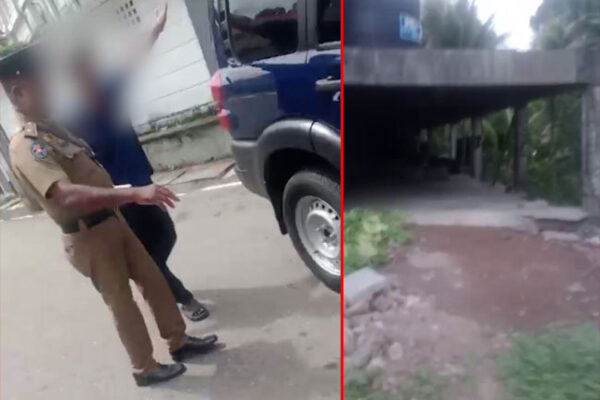DR MASIHUDEEN INAMULLAH
COLOMBO : “Ranil Wickremesinghe exploited the strength of a once-mighty political party to secure personal power, sidelining colleagues and eroding internal democracy.”
The United National Party (UNP), once the strongest political force in Sri Lanka, has steadily declined under the long leadership of Ranil Wickremesinghe. What began with high expectations in the mid-1990s has, three decades later, reduced the party to near political irrelevance.
1993–1994: Leadership Transition
The assassination of President R. Premadasa in May 1993 elevated Prime Minister D.B. Wijetunga to the presidency. He appointed Ranil Wickremesinghe as Prime Minister. In 1994, Gamini Dissanayake was nominated as UNP’s presidential candidate and party leader, but his assassination during the campaign left Wickremesinghe to assume both roles. Chandrika Bandaranaike Kumaratunga won the presidency, marking the start of a long political rivalry.
1999: First Presidential Defeat
As Leader of the Opposition, Wickremesinghe contested the 1999 presidential election against Chandrika Kumaratunga and lost, setting the tone for a series of electoral setbacks.
2000–2001: Short-lived Return to Power
The UNP lost the 2000 general election, but Wickremesinghe attempted to destabilize the People’s Alliance (PA) government by winning over the Sri Lanka Muslim Congress (SLMC) after the assassination of its leader, M.H.M. Ashraff. This maneuver forced President Kumaratunga to dissolve Parliament, leading to fresh elections in 2001. The UNP won, and Wickremesinghe became Prime Minister for the second time.
2002–2004: The Ceasefire Agreement
In 2002, Wickremesinghe signed the Norwegian-brokered Ceasefire Agreement (CFA) with the LTTE, which effectively allowed the Tigers de facto control in the North and East. Widespread LTTE violations and rising security risks undermined the government, prompting President Kumaratunga to dissolve Parliament in 2004.
2004–2005: Defeats and Opposition Politics
The UNP lost the 2004 general election, relegating Wickremesinghe to the Opposition once more. In the 2005 presidential election, he contested against Mahinda Rajapaksa but was narrowly defeated.
2010: Common Candidate Gamble
In 2010, Wickremesinghe did not contest the presidency, instead backing General Sarath Fonseka as the “common opposition candidate.” Fonseka lost, and in the subsequent general election, the UNP’s coalition was again defeated by the UPFA.
2015: Return through a Coalition
The opposition coalition selected Maithripala Sirisena as its common candidate against Mahinda Rajapaksa. After Sirisena’s victory, Wickremesinghe was appointed Prime Minister for the third time, even without a parliamentary majority. Later that year, the NDF coalition won the general election, securing Wickremesinghe the fourth term, as Prime Minister.
2019–2020: Fragmentation and Collapse
In 2019, internal divisions deepened as a breakaway coalition fielded Sajith Premadasa against Gotabaya Rajapaksa in the presidential election, which Premadasa lost In 2020, the UNP suffered its worst defeat in history, failing to win a single parliamentary seat. Wickremesinghe re-entered Parliament only through a solitary national list seat.
2022: Presidency Amid Crisis
During the height of Sri Lanka’s economic collapse in 2022, President Gotabaya Rajapaksa appointed Wickremesinghe as Prime Minister. When mass protests forced Rajapaksa to resign and flee the country, Wickremesinghe was elevated to the presidency.
2024: A Party Reduced to Irrelevance
In the 2024 general election, the UNP, under Wickremesinghe’s leadership, did not even contest, confirming its complete loss of political relevance.
Conclusion:
Over three decades, Ranil Wickremesinghe’s leadership has been marked by electoral defeats, fragile coalitions, internal rifts, and strategic missteps. Once a dominant political machine, the UNP today stands diminished, sidelined by its own lack of internal democracy and direction.
The irony is stark: the very leader who presided over the destruction of his party’s democratic foundations now appeals to the opposition to unite in the name of democracy.















